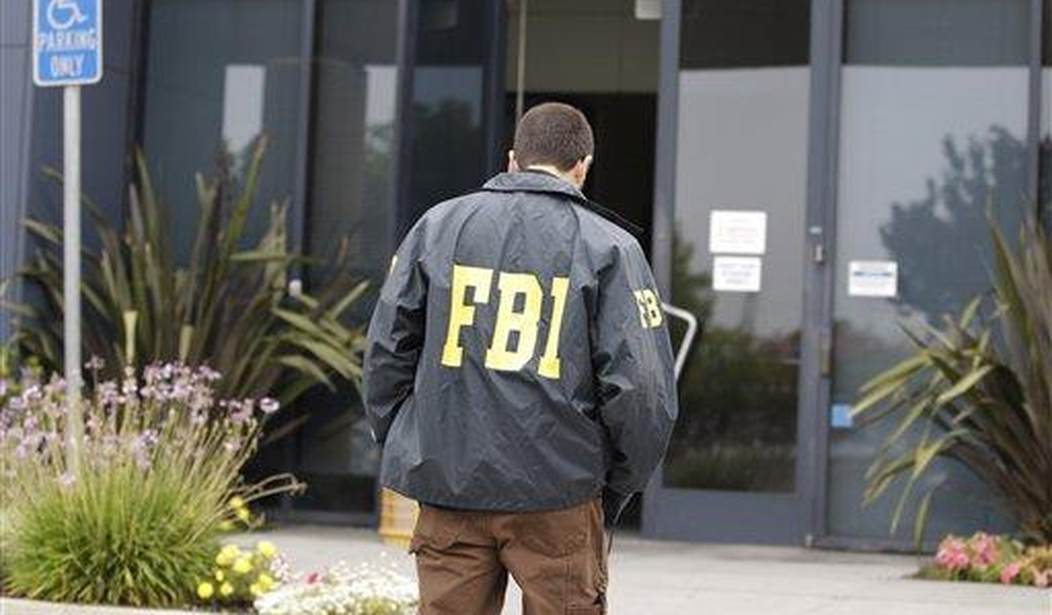Defunding the FBI makes about as much sense as defunding the police. Granted, the FBI is systemically flawed with an executive cadre tainted by the actions of an unknown number of politically motivated activists — that is simply undeniable. As a result, a number of current FBI employees have come forward and made use of statutory “whistleblower” protections. And, many from the retired agent community, including myself, have been critical of FBI actions of late.
Reportedly, as many as twenty-four FBI whistleblowers have contacted Senator Chuck Grassley and Representative Jim Jordan to report on a culture of politicization. A few whistleblowers have gained notoriety and are building social media platforms aided by popular conservative media personalities. Their voices are becoming increasingly strident and bitter.
A whistleblower seeking to assuage a bruised ego isn’t likely to effect real change. The American people deserve to be represented by whistleblowers who act out of a sense of duty, unalloyed by personal animus or by an impulse for self-aggrandizement.
The FBI has been the subject of internal and external investigations initiated by whistleblower actions since 1971 with the rise of “Deep Throat,” during the Nixon administration. In 2005, Deep Throat was revealed to be former Associate Director of the FBI W. Mark Felt. The Watergate scandal is still shrouded in mystery, but it can be safely said that Felt was involved in the deep state’s first real attempt to remove a sitting president — successfully. If you’re interested in a deep dive into the Watergate scandal and the involvement of the deep state, see Monica Crowley’s book Nixon Off the Record and her recent interview with Tucker Carlson on Tucker Carlson Today.
Perhaps, the two most impactful modern whistleblowers are Dr. Frederic Whitehurst and Former Special Agent Coleen Rowley.
Dr. Frederic Whitehurst became the first modern day FBI whistleblower in 1997. Whitehurst, a chemist assigned to the FBI Laboratory, reported a lack of scientific standards that affected the Trade Center and Oklahoma City bombing cases. His disclosures resulted in the overhaul of FBI Laboratory practices and procedures. In addition, Dr. Whitehurst filed and won a whistleblower retaliation case reaching a settlement with the FBI worth approximately $1.6 million dollars. He now directs the National Whistleblower Center.
Recommended
In 2001, Former Special Agent Coleen Rowley raised concerns over the failure of the FBI to properly evaluate information that could have impacted the outcome of the 9/11 terrorist attacks. Her testimony before congress led to a multi-year investigation of DOJ and FBI policies and procedures. As a result of Rowley’s whistleblowing, the FBI formed the Office of Intelligence and greatly expanded its counterterrorism capabilities. Rowley retired as an FBI Special Agent in 2004.
Both Whitehurst and Rowley were accomplished employees who sought to address glaring deficiencies within the FBI structure. In particular, Rowley functioned as a whistleblower while continuing to perform at a high level as an FBI agent. And, neither Rowley nor Whitehurst seem to have engaged in public attacks on the agent community broadly.
Recently, a few FBI whistleblowers have leveled accusations against the general agent population, lamenting a perceived lack of support, and maligning the motives and character of FBI agents that have not expressed direct support for whistleblowers. This sort of scurrilous accusation does nothing but raise concerns about whistleblower motives.
During my twenty year FBI career, I never worked with a single individual who I would describe as “politicized.” My interaction with FBI executive management was nearly nonexistent for most of my career, and even as a field supervisor my interaction with the Senior Executive Service level managers was quite limited. That is to say, I spent twenty years working daily with the “rank and file” who have recently been publicly smeared by a few FBI whistleblowers — this is utterly odious.
The FBI is populated by a large cadre of honorable people — good men and women — many of whom risk their lives to thwart predators, organized criminals, agents of foreign powers, as well as terrorists bent on decimating the innocent. They do this work without adulation from the press or from conservative media personalities. They stand on the battlements far out of sight of studio lights and professional podcasters. Attacking these good men and women is loathsome, and is unequivocally a colossal mistake.
Whether the good men and women of the FBI decide to step forward and publicly support whistleblowers has no bearing on their commitment to the Constitution. And, falling prey to a “Captain America” syndrome —thinking that masses will form behind you — can only be described as arrogant and a bit narcissistic. Perhaps, whistleblowers of this kind should rethink with whom they associate and recall the Biblical principle: Iron sharpeneth iron; so a man sharpeneth the countenance of his friend. (Proverbs 27:17)
FBI agents who decide to work within the system and become the principled leadership the FBI so desperately needs are no less important than those who are called by conscience to avail themselves of the whistleblower status and its protections.
The FBI is clearly in need of reform, just like the NYPD of the late 1960’s and 1970’s. It took a man like Frank Serpico to step forward and become the catalyst for change. Serpico became the subject an eponymously named movie starring Al Pacino. He was a courageous and principled whistleblower who identified the structural problems in NYPD management. Serpico retired on June 15, 1972, one month after receiving the NYPD Medal of Honor. Current FBI whistleblowers would do well to follow in his footsteps.

























Join the conversation as a VIP Member